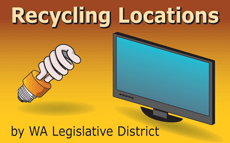The blight of Tetra Paks covering Vietnam's beaches and towns
Dec. 9, 2018, The Guardian: "Milk consumption in Vietnam has almost doubled in the past 10 years, as the dairy industry shifts its focus from “saturated” western markets in favour of Asian expansion and is now valued at $4.1bn (£3.1bn). But one of the biggest beneficiaries of this growth seems to be the dairy industry’s principal packaging supplier, Tetra Pak. Last year, 8.1bn of Tetra Pak’s individual cartons were sold across Vietnam. Yet a comprehensive country-wide recycling programme is yet to be implemented. Now, as cartons pile up on beaches and in landfills up and down the country, that’s having a devastating effect on the environment...
Tetra Pak told the Guardian that they are recycling 18,000 metric tonnes of cartons a year, with 93,000 packs per tonne, which would mean that they are currently recycling about 20% of their output..."
"Recycling Tetra Pak cartons is possible, but only if you have the right systems and technology in place. In the past, we bought Tetra Pak waste directly from Tetra Pak, and we also bought milk cartons from informal collectors and litter pickers across the country. But the latter has proved financially ineffective, and it was impossible for us to make a profit," according to the carton recycling plant manager.
These days, the Dong Tien plant only accepts waste materials sent directly by the Tetra Pak-affiliated dairy companies themselves. “Between 30% and 50% of the product is aluminium and plastic, and the rest is paper,” says Quyet Tien. “But it’s not simply a matter of mashing the cardboard down or melting the plastic – we have to extract each separate layer and treat them all in different ways.” The process still isn’t cost-effective he says, but it’s their social responsibility to do what they can to help the environment – even if it’s not enough. "We’d love to be able to recycle the cartons that people use and throw away afterwards – I’m sure many recycling plants would – but we get very little support from Tetra Pak themselves and we’re not a charity."
"The result? A country festooned with empty milk cartons. You’ll see clusters outside primary schools and nurseries: one million primary school children get a free carton of sweetened milk at school every day, thanks to a Tetra Pak-supported governmental project. A waste education programme is being piloted in 30 kindergartens, but what happens to the five million cartons at the end of each school week still depends on the institution. "We try to use as many cartons as we can for our arts and crafts lessons," says Phung Thi Dung, 38, who has been working as a primary school teacher in the Ba Ria province for ten years. "But the rest just get thrown away. I’m not sure where they end up."
